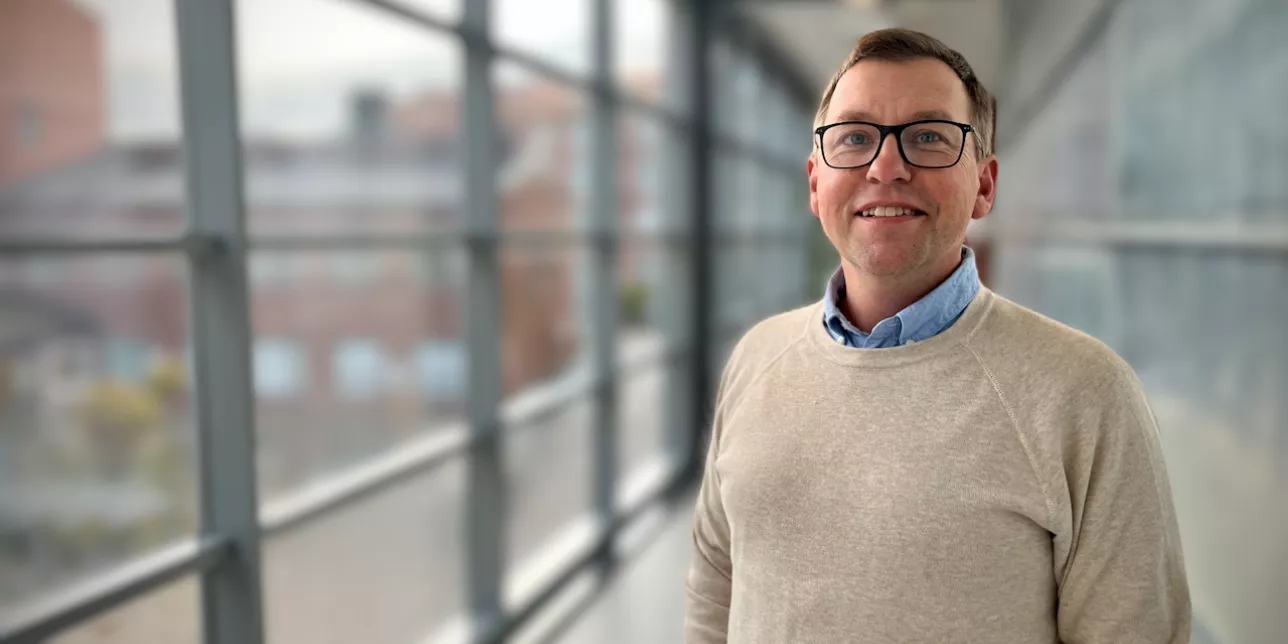Q: Can you tell us a little about your background and journey in stem cell research?
A: Of course. I'm originally from Sweden and moved to Lund in 1995 to join the biomedicine program at Lund University. I was part of the first cohort within the biomedicine program here. Later, I pursued my Ph.D. at Lund University, focusing on the regulation of hematopoietic stem cells using genetic mouse models under the guidance of Stefan Karlsson. After completing my Ph.D., I joined Hannah Mikkolas' group at UCLA in Los Angeles, where I continued studying blood stem cell regulation, this time using human primary cells and establishing a disease model for leukemia. I returned to Sweden after that and worked as a postdoc for one year before starting my own lab, initially focusing on human hematopoietic stem cell regulation in normal and malignant hematopoiesis. However, around five years ago, I shifted my research towards lung biology, specifically the airway epithelium, studying stem cells in the airway and their connection to chronic lung diseases and lung cancer.
Throughout this journey, I must admit that the process of making such a change has been both rewarding and challenging. Transitioning from a well-established field like hematopoietic stem cells to the relatively new field of lung biology required starting over in many aspects. It took time to establish a professional network in this new field, which of course had implications on access to tissue samples and other resources, for example. Nonetheless, engaging in new collaborations within this area has made the journey exciting and worthwhile. I also find the opportunity to apply my knowledge from the blood field to the lung field extremely rewarding.
Q: What inspired you to take on the role of executive coordinator of the Research School in Stem Cell Biology?
A: I am very passionate about teaching and inspiring students in stem cell biology and regenerative medicine. I take teaching seriously and always come prepared for sessions, using various tools to keep the material fresh and up to date. My goal is to always be fully engaged during lectures to enhance the students' learning experience. I also find it essential to develop new educational activities and see education as critical for the future of stem cell research. These reasons motivated me to step into this role and work towards further developing the skills and knowledge within our Center.
Q: What is your vision for the research school going forward?
A: Ultimately, we seek to train the next generation of stem cell scientists and advance regenerative medicine by developing therapies that reach the clinic. This includes training not only basic researchers, but also other professionals involved in the development pipeline, such as technicians and clinicians. My primary aim is to make our Center the first choice for students interested in stem cell biology and regenerative medicine.
Q: How do you envision your role as the executive coordinator?
A: As the executive coordinator, my objective is to create a strong foundation for promoting basic molecular research and taking it from the bench to the clinic. As I mentioned, I want to make our Center the top choice for students and postdocs interested in stem cell biology and regenerative medicine. By focusing on education, networking, branding, and funding, I hope to help create an attractive research environment, lead the research school toward achieving its goals, and effectively educate the next generation.
Q: What are the primary goals and priorities you hope to achieve with the research school?
A: Our goals include strengthening education, encouraging networking and collaboration, fostering a sense of community, and actively engaging with the public to promote stem cell research and regenerative medicine.
In terms of education, we are actively working on establishing comprehensive educational programs in regenerative medicine and advanced therapies at both the undergraduate (second-cycle studies) and Ph.D. (third-cycle studies) levels. Establishing these programs will allow us as a Center to foster the next generation, which are needed to keep the field moving forward. Additionally, we seek to streamline and centralize the recruitment process for the Center's members through these educational initiatives.
Along these lines, we are also supporting ongoing courses and are currently developing new courses in collaboration with our core facilities. In addition, we are proud to sponsor seminar series like the Next Gen Seminars, offering valuable learning opportunities to our students and researchers. Furthermore, we have established a new student representative group or networking organization team for Ph.D. students and postdocs, which will begin implementing its activities in the upcoming fall semester.
Another priority is providing training for principal investigators (PIs). To achieve this, we plan to reintroduce leadership courses, recognizing the importance of cultivating leadership skills within our environment. Additionally, we plan to initiate a new round of the Professional Development Program (PDP) for Ph.D. students, enhancing their growth and career prospects.
Networking activities are of significant interest to us, and we are actively exploring various opportunities, such as organizing retreats for students and PIs. These initiatives will foster cross-disciplinary exchange and facilitate the emergence of novel ideas and joint research projects, enriching the collaborative spirit within our community.
Finally, we are deeply committed to public outreach and engagement. We conduct events like UniStem Day, aimed at reaching out to the wider public and creating awareness about our work in stem cell research and regenerative medicine.
With Mattias Magnusson at the helm of the Research School in Stem Cell Biology, the future looks bright. His vision for advancing the field through education, networking, and research, as well as his emphasis on collaboration, aims to position the research school as a top choice for students and researchers alike. We look forward to seeing the advancements and achievements that will come from his leadership.


